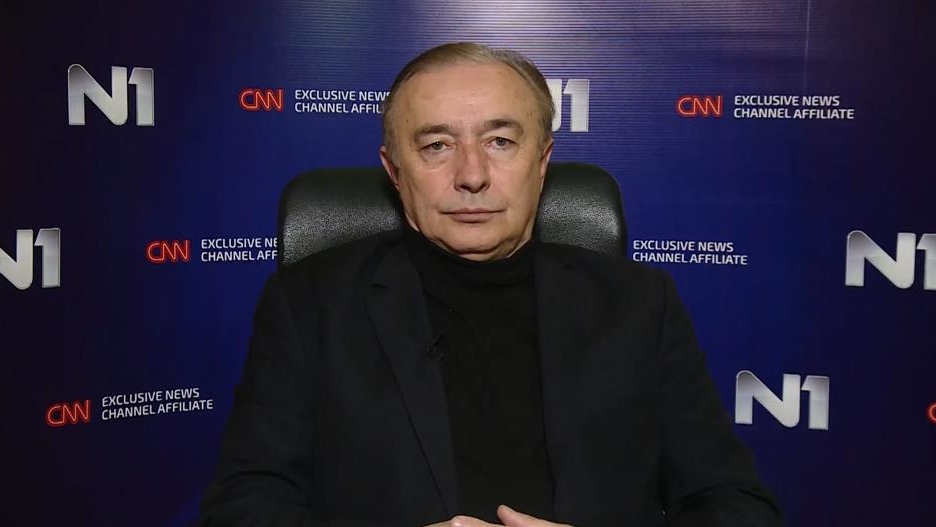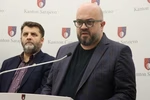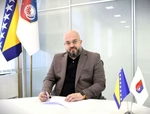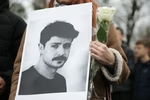
What Bosnia has is not peace but an absence of war and just like in the 90s, its neighbors, Serbia and Croatia have bad intentions, sociologist Slavo Kukic and culturologist Srdjan Susnica told Radio Free Europe on Sunday.
Serbia and Croatia are not guarantors of peace and stability in Bosnia, as their leaders often like to put it, but they are participants in the 1992-95 Bosnian war, the experts said, adding that they also signed the 1995 Dayton Peace Agreement which ended the war in Bosnia in this capacity.
"They are actors in a bloody event that took place in the first half of the 1990’s. According to the clauses they signed, this is how they should behave as well," Mostar-based Kukic said, while Susnica, who spoke from Banjaluka, said the two countries were "actors in the aggression on Bosnia and Herzegovina."
"That is why their constant narrative about them being guarantors of peace in Bosnia is very problematic," Susnica said.
The peace in Bosnia is very problematic itself, according to the culturologist.
"Bosnia and Herzegovina is experiencing the absence of war and armed conflict, so we cannot speak of peace and stability in Bosnia because of mostly Serbia’s, but also Croatia’s policy toward it," he said.
Croatia’s leadership often states that the country fully respects Bosnia’s sovereignty, but according to Kukic, this is not true. He said that the way Croatia has been behaving recently shows the opposite.
"Look at the statements coming from Croatian officials on the Election Law in Bosnia. They represent open involvement into the internal issues of a sovereign country," he said, adding that the frequent "lessons" Croat President (Kolinda) Grabar-Kitarovic is teaching Bosnia remind of the 1990’s and the politics of wartime Croatian President, Franjo Tudjman.
"What can one say regarding the loud applause that could be heard at the Croat Democratic Union (HDZ) convention when (Bosnian Croat Presidency member) Dragan Covic said that Bosnian Croats will stand and defend Croatia’s border so migrants cannot enter Croatia," he exemplified.
The ongoing practice, he said, proves that Croatia is "not sincere" when its leadership states it wants to help Bosnia on its path towards the EU.
"Instead of that, we see that Croat politics toward Bosnia are more and more returning to the period of the 1990’s," he said, referring to the Croatia’s wartime aspirations to divide Bosnia and annex parts of it.
Susnica criticized Serbian President Aleksandar Vucic as well, saying his statements about Serbia respecting the sovereignty of its neighboring country were not sincere.
"During the 1990’s, Slobodan Milosevic also kept repeating that Serbia respects the sovereignty of Bosnia and Croatia, yet he launched a bloody aggression," he said.
"At the core, Serbia invested all it had in the wars in the 1990’s. It invested the resources of the Yugoslav National Army, people and its international reputation. Serbia wanted to abuse the disintegration of Yugoslavia in order to get all those territories which pan-Serbian cleronationalists, including Vucic and the Radicals (Serbian Radical Party), believed and still believe is Serbian land," Susnica said, adding that apart from these investments, "Serbia also invested the fate of Serbs living in Croatia and Bosnia into that project."
Kukic said that Croatian officials would like to see a third, Croat-dominated semi-autonomous entity created in Bosnia, one like Republika Srpska, Bosnia’s Serb-dominated entity.
"All that while justifying this with statements that Croatia has a obligation to help Croats in Bosnia and Herzegovina," he said.
"Let’s accept that explanation, but why don’t they then mobilize Croatian business people to invest into all of those parts of Bosnia where Croats live?" he asked, saying this would also solve the problem of Croats leaving Bosnia.
Kakvo je tvoje mišljenje o ovome?
Učestvuj u diskusiji ili pročitaj komentare





 Srbija
Srbija
 Hrvatska
Hrvatska
 Slovenija
Slovenija



























































